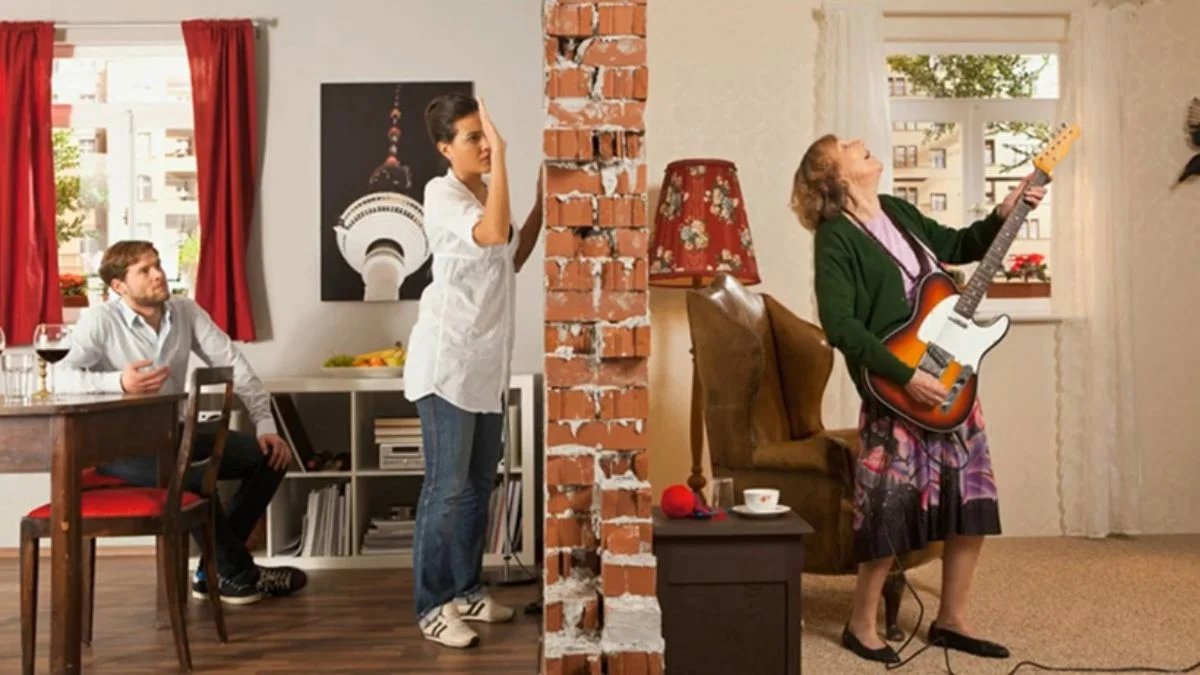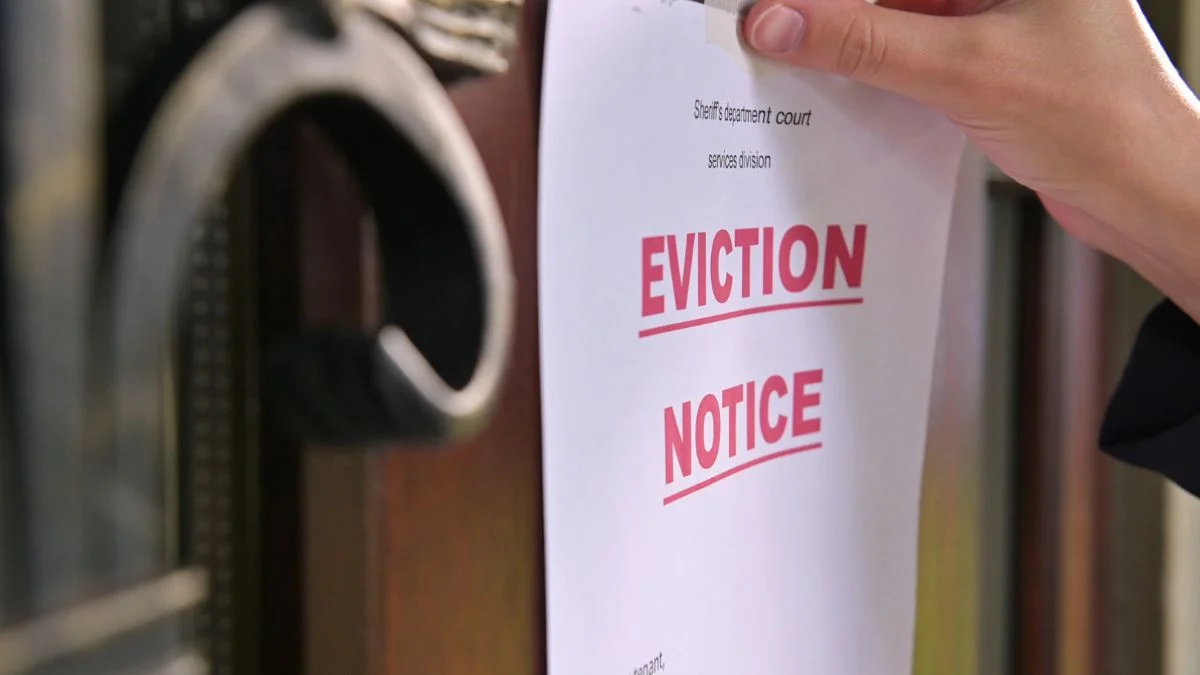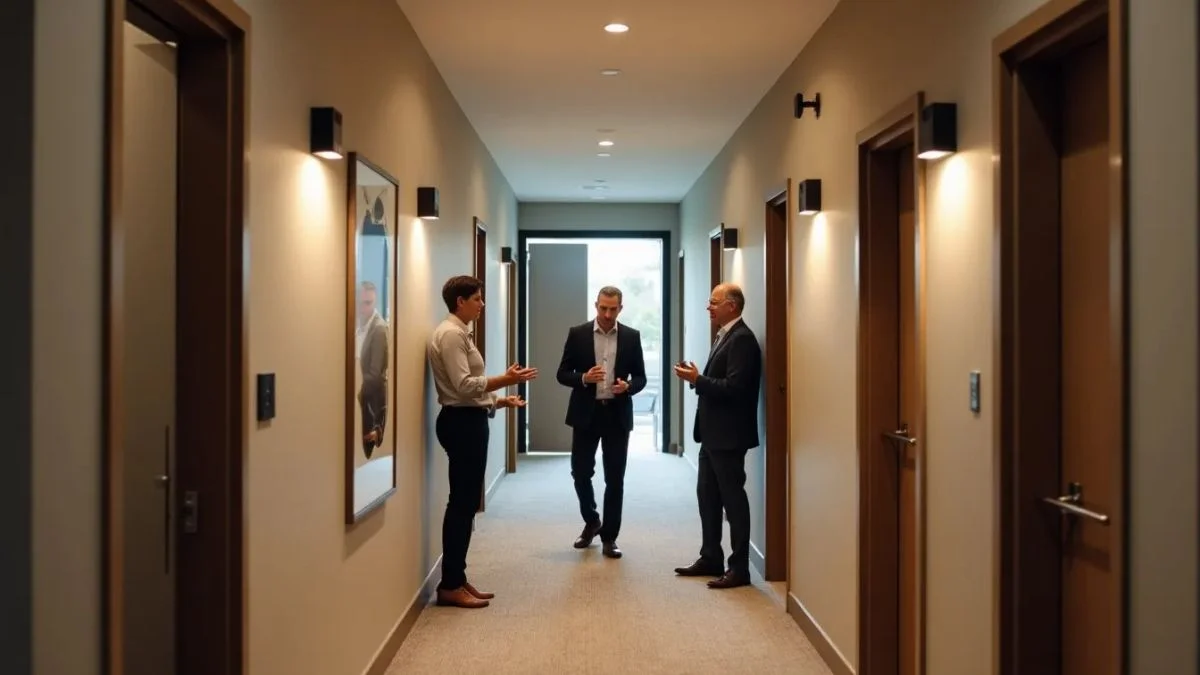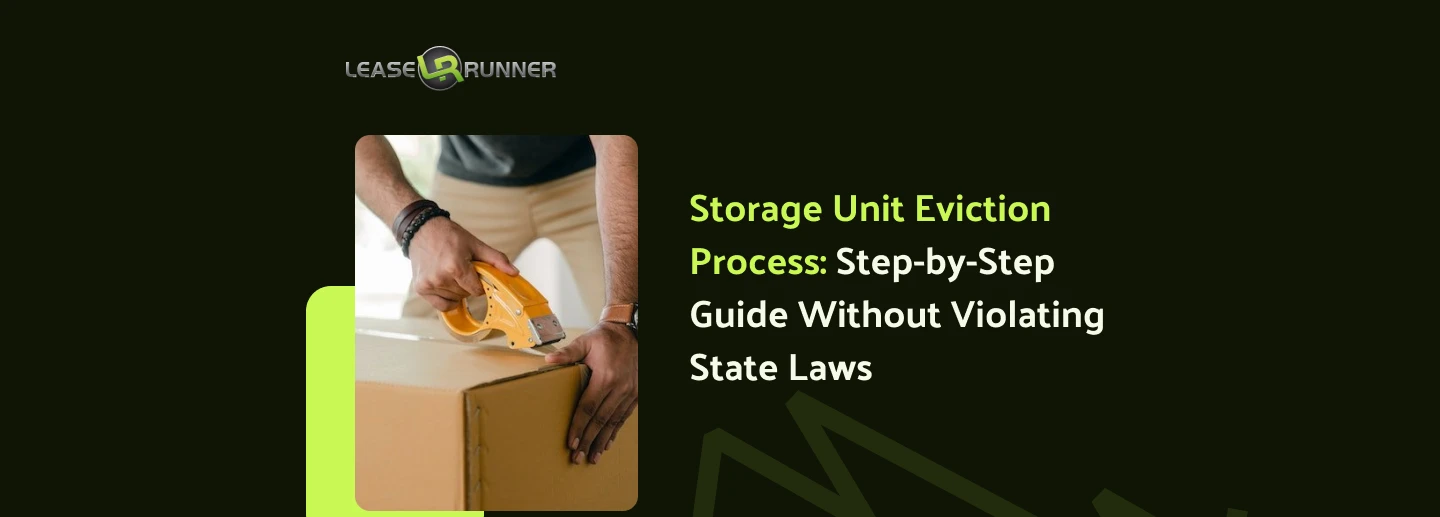Living in an apartment or shared housing can be challenging, especially when dealing with noisy neighbors. For both tenants and landlords, a common question arises: how many noise complaints until eviction? The answer isn't a simple number. It depends heavily on your lease agreement, local laws, and the severity of the noise.
In this article, we’ll explore eviction for noise complaints, what counts as a violation, tenant noise complaints, and the legal rights and responsibilities of both tenants and landlords. We’ll also provide practical advice on how to handle noise complaints in apartments.
What Is Considered a Noise Complaint?

A noise complaint is a report made by a tenant, neighbor, other residents, a homeowners’ association (HOA), or building management about excessive or disruptive noise. What's "excessive" can be subjective, but it generally includes sounds that interfere with a neighbor's "quiet enjoyment" of their home.
Common elements of a noise complaint include:
- Source of the noise (loud music, TV, or parties late at night, barking dogs or other noisy pets, regular yelling, shouting, or arguments….)
- Time and duration of the noise
- Frequency or recurrence of the disturbance
- How the noise affects the complainant’s daily life or quiet enjoyment
- Any previous attempts to resolve the issue informally
Many cities define “quiet hours,” usually between 10 P.M. and 7 A.M. on weekdays and until 8 or 9 A.M. on weekends. when excessive noise is prohibited. Local ordinances and laws about noise in apartments determine whether the disturbance is legally valid.
Can You Be Evicted for Noise Complaints?
Yes, you can be evicted for noise complaints. Loud, disruptive noise is often a violation of the lease agreement. Most leases have a clause requiring tenants to respect their neighbors' right to a peaceful living environment. Violating this clause is considered a breach of contract, which can be grounds for eviction.
The key is that the noise must be a "material breach" of the lease. This means the problem is significant enough to justify terminating the tenancy. A single, minor incident might not lead to an eviction, but a pattern of repeated violations likely will.

So, who handles noise complaints?
Noise issues are not always handled by just one party. Depending on the severity and frequency, different people or authorities may step in:
- Landlord or property manager: usually the first to receive complaints and enforce lease rules.
- Neighbors: may directly report disruptive behavior to the landlord or call local authorities.
- Local police or code enforcement: involved when noise breaks city ordinances or quiet-hour laws.
- Homeowners’ associations (HOAs): in communities with HOAs, they may issue warnings or fines.
- Courts: ultimately, if problems persist, eviction is handled through the legal system.
This layered process ensures tenants are given fair warnings while protecting the right of other residents to enjoy a peaceful home.
How Many Noise Complaints Until Eviction?
There's no magic number of noise complaints that automatically triggers an eviction. For example, there's no law stating "three noise complaints until eviction." Instead, the process is a series of steps that a landlord typically follows. The number of complaints required depends on:
- The lease agreement: Some leases might specify that "multiple complaints" can lead to eviction.
- The severity of the noise: A single instance of extremely loud, late-night noise might be enough, while a few minor, daytime incidents may not.
- Local laws: Some jurisdictions have stricter rules than others.
For instance:
- In Dallas, Texas, ordinances prohibit loud sounds after 10 PM, and fines may be issued for violations.
- In Houston, noise restrictions are less strict during the day but become stricter at night, with quiet hours beginning at 10 PM in residential zones.
The more frequent and severe the complaints, the faster a landlord will move toward eviction.
How Landlords Typically Handle Noise Complaints

Landlords generally follow a structured process before resorting to eviction. Here's a common sequence of events:
1. Issue warnings
After the first complaint, a landlord will often issue a verbal or written warning to the tenant. Typically, landlords may issue one or two warnings before taking further action. These warnings are usually informal notices asking the tenant to be more considerate and also serve as documentation that the landlord has attempted to resolve the issue.
2. Provide a formal notice
If the problem continues, the landlord will issue a formal notice. This is often called a “Cure or Quit” notice, which tells the tenant they must either fix the problem (cure) or move out (quit). In some jurisdictions, landlords may also pursue a no-fault eviction if they decide to end the tenancy for reasons unrelated to lease violations, such as property renovations or moving in family members.
- In Texas, landlords may issue a 3-day notice to cure or quit under the Texas Property Code if the tenant violates the lease.
- In Florida, according to Florida Statute §83.56, tenants who violate lease terms may be served with a 7-day notice to cure. If they fail to comply, the landlord can terminate the rental agreement.
- In California, landlords can serve a 3-day notice to quit for nuisance if noise disturbances rise to the level of a legal nuisance under California Civil Code §3482.
If you’re drafting a notice, here’s a helpful lease termination letter template.
3. File an eviction lawsuit
If the tenant fails to comply with the notice, the landlord can then file an eviction lawsuit with the court. This is the legal process to remove a tenant from the property. In some cases, a landlord might need to issue a different type of notice, such as a three day notice to cure or quit.
4. Eviction Proceedings
In court, the landlord must provide evidence that the tenant breached the lease by causing ongoing noise disturbances. Acceptable evidence includes:
- Written complaints from neighbors
- Police or code enforcement reports
- Copies of notices and communication records
However, landlords should be careful not to engage in illegal monitoring practices. For instance, secretly living in a rental unit to gather evidence - an act known as phrogging, is unlawful and could backfire in court.
If the judge rules in favor of the landlord, an official eviction order is issued. The process timeline varies by state. For details, see how long an eviction takes.
Tenant Rights and Responsibilities in Noise Complaints

As a tenant, you have rights. A landlord can't simply evict you without following the proper legal process. Key rights include:
- Right to due process: A landlord must give you proper notice and follow state laws.
- Right to a peaceful environment: You have a right to "quiet enjoyment" of your property, and your landlord has a responsibility to address complaints about noisy neighbors.
- Right to know the issue: You should be given specific details about the complaints so you can address them.
On the other hand, tenants have responsibilities:
- Follow the lease: Adhere to all rules and policies, including those about noise.
- Be a good neighbor: Be considerate of those around you.
- Communicate: If there's an issue, talk to your neighbors or landlord to resolve it.
Noise Complaint Laws in Your States
State and city laws play a significant role in what is considered a noise complaint and how they are handled. Here's a brief look at some common states:
Noise Complaint Laws in Texas
In Texas, the process for how many noise complaints until eviction Texas isn't codified by a specific number. Instead, landlords follow the lease agreement. Most Texas cities, like Houston and Austin, have noise ordinances with specific quiet hours, often from 10 PM to 7 AM. A repeated violation of these city ordinances, which often constitutes a breach of the lease, can lead to eviction processes in Texas.
Noise Complaint Laws in Florida
Similar to Texas, Florida law doesn't specify a number. How many noise complaints until eviction Florida depends on the lease. Florida Statute 83.56 outlines the process for non-compliance with a lease. A landlord can give a tenant a 7-day notice to cure the violation. If the tenant doesn't comply, the landlord can terminate the lease and begin eviction proceedings.
Noise Complaint Laws in California
California also doesn't have a fixed number of complaints. Noise that constitutes a "nuisance" can be grounds for eviction. California Civil Code § 3482 states that anything that is "injurious to health... or an obstruction to the free use of property" is a nuisance. This applies to excessive noise. For chronic issues, a landlord may issue a 3-day notice to quit for nuisance for eviction in California..
Below is a quick summary of quiet hours, noise rules, and how they may affect eviction in Texas, Florida, and California:
How to Prevent Noise Complaints as a Tenant?

Being proactive is the best way to avoid tenant complaints about noise.
- Understand and Follow Noise Policies: Start with your lease. Many landlords include quiet hours (commonly 10 PM – 7 AM) or specific rules about parties, instruments, or subwoofers. Knowing these upfront ensures you stay compliant and avoid conflicts later.
- Communicate with Neighbors: A simple conversation can solve many problems. If you plan to host a gathering, give your neighbors a heads-up. This small courtesy often prevents frustration and helps build goodwill.
- Use Sound-Reducing Measures: Even everyday living sounds like footsteps, TV, or moving chairs, can travel through walls and floors. Add rugs on hardwood floors, hang thick curtains, or position bookshelves and couches against shared walls to absorb sound.
- Keep Volume Low and Avoid Late-Night Noise: Be especially mindful of electronics. Lower your TV, gaming system, or music volume after quiet hours. Headphones are an easy solution for late-night entertainment.
- Manage Pets Responsibly: Train your dog to minimize barking. Don't leave them alone for long periods if they tend to bark.
- Report Issues Proactively: If another tenant is being disruptive, don’t retaliate with more noise. Instead, document the dates and times and bring the issue to your landlord. This creates a clear record and ensures the situation is handled fairly.
How to Prevent Noise Complaints as a Landlord?

Landlords also have a responsibility to foster a quiet and respectful community. Addressing noise concerns early helps maintain tenant satisfaction and reduces turnover.
- Establish Clear Noise Policies: Every lease should include a well-defined noise clause. Outline quiet hours, examples of excessive noise, and the consequences for repeated violations.
- Enforce Quiet Hours: Clearly state quiet hours and enforce them consistently.
- Screen Tenants Carefully: A thorough eviction check can help you avoid tenants with a history of being disruptive.
- Regular Property Inspections: Periodic inspections are not just about maintenance. They also give landlords a chance to ensure tenants are following rules and to catch issues before they escalate.
- Upgrade Soundproofing: In multi-family units, noise transfer can be a constant source of disputes. Adding carpets in hallways, installing weatherstripping, or investing in soundproof drywall can reduce complaints in the long run.
- Maintain Open Communication Channels: Tenants are less likely to escalate problems if they feel heard. Encourage them to contact you directly instead of calling city authorities first. Quick, fair resolutions keep the peace and protect your rental community.
Conclusion
There is no fixed number for how many noise complaints until eviction. The process is legal and depends on the lease, local laws, and the severity of the problem. While a single complaint may not lead to eviction, a pattern of documented violations can certainly put your tenancy at risk. For tenants, being a good neighbor and communicating with your landlord is key. For landlords, a clear lease and consistent enforcement are crucial to preventing and managing noise issues.
To make managing leases and eviction processes easier, landlords and tenants alike can rely on LeaseRunner for tools like eviction checks, lease templates, and step-by-step guidance to ensure every action is legal and well-documented.
FAQs
Can You Be Kicked Out for Being Too Loud?
Yes, being too loud can be a reason to get kicked out. If your noise violates your lease agreement or local noise ordinances, your landlord can begin the eviction process. The issue is usually a "material breach" of the lease.
Is It Illegal to Play Loud Music After 11 PM in Texas?
Most cities in Texas have a noise ordinance that prohibits loud, disruptive noise after a certain time, often 10 PM or 11 PM. While it might not be a criminal offense, it is a violation of a civil ordinance and can be a basis for a noise complaint and a subsequent eviction if it's a recurring issue.
Can You Be Evicted Without Proof of Noise?
It's very difficult for a landlord to win an eviction case without proof. Can I be evicted for noise complaints without proof? The answer is generally no. Landlords must provide documented evidence, such as written complaints from other tenants, police reports, or their own observations, to prove that a tenant has violated the lease. For guidance, see can you evict a tenant without a lease.







